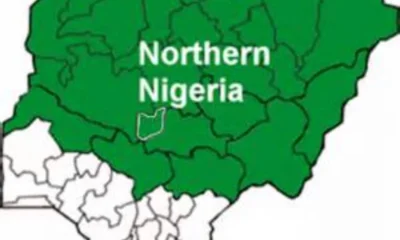Info Guide
Telecom operators threaten service suspension

Telecommunications operators in Nigeria, under the Association of Licensed Telecommunications Operators of Nigeria (ALTON), have issued a warning to suspend services in select regions unless the Nigerian Communications Commission (NCC) approves their long-standing request for tariff adjustments.
In a statement, ALTON Chairman Engr. Gbenga Adebayo highlighted the dire situation facing the telecom sector, citing unsustainable operational costs, soaring energy prices, high inflation, and currency volatility as significant challenges.
“The survival of this industry demands immediate and bold reforms. Tariffs must reflect the economic realities of delivering telecom services to ensure the sector’s sustainability,” Adebayo stated, emphasizing that current tariffs remain stagnant due to regulatory restrictions.
ALTON warned of the potential for “service shedding,” which could result in limited service availability in specific areas or times. This, they caution, could leave millions of Nigerians disconnected, disrupting key sectors such as security, commerce, healthcare, and education that depend on telecom infrastructure.
Adebayo stressed that without tariff revisions, operators will struggle to sustain and modernize their networks, adding that the resources needed to keep the industry afloat are no longer available.
Economic analysts have echoed these concerns, pointing to the ripple effects of potential service disruptions on Nigeria’s economy. Dr. Femi Olukoya, an economist specializing in digital infrastructure, warned that a breakdown in telecom services could cripple businesses, hinder innovation, and slow GDP growth.
“Telecommunications are the backbone of modern economies,” Olukoya said. “Any disruptions could also jeopardize national safety, as security operations often rely on real-time communication and data sharing.”
The NCC, responsible for regulating telecom tariffs, has maintained its stance on requiring a cost-based study before considering any price adjustments. While this approach aims to protect consumers, operators argue it has left them unable to respond to Nigeria’s rapidly evolving economic challenges.
-

 Metro News2 days ago
Metro News2 days agoBauchi man to present Sallah ram to Tinubu in Lagos after failed attempt
-

 Politics2 days ago
Politics2 days ago2027: Sowore expresses concern over coalition to unseat Tinubu
-

 National News2 days ago
National News2 days agoBreaking: Shettima storms Mokwa as death toll rises
-

 National News2 days ago
National News2 days agoSenator Natasha phone number cloned in alleged cyber impersonation scheme
-

 Politics21 hours ago
Politics21 hours agoPDP targets David Mark as new party chairman
-

 Metro News23 hours ago
Metro News23 hours agoGovernment uncovers 7,000 ghost workers on payroll
-

 Politics2 days ago
Politics2 days agoAdeleke’s defection rumour spark speculation
-

 National News2 days ago
National News2 days agoNorthern Elders raise alarm over Niger flood disaster




















